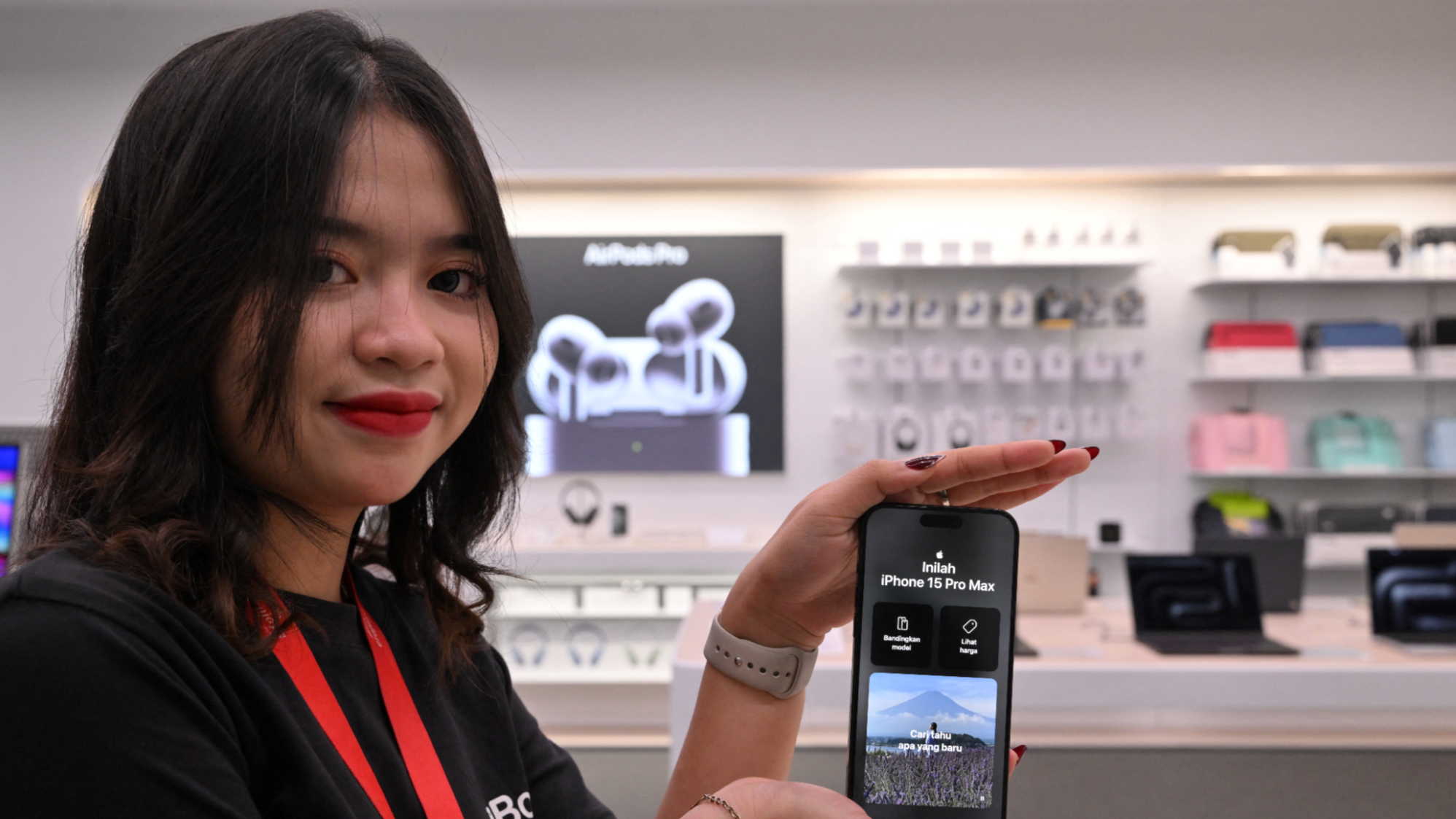
Indonesia and Apple Inc have agreed on terms to lift the country’s ban on iPhone 16s, said people familiar with the matter, paving the way to end a five-month tug-of-war that forced the US tech giant to raise its promised investment in the country to $1 billion.
The Ministry for Industry, which is responsible for upholding the ban, is set to sign a memorandum of agreement with Apple as soon as this week, according to people familiar with the talks, who asked not to be identified discussing private matters. A press briefing will also be held, the people said, adding the ministry intends to issue a permit allowing iPhone 16 sales as soon as possible.
The deal concludes a battle that started in October after Indonesia refused to issue a permit for the sale of Apple’s latest device, citing a failure to comply with domestic manufacturing requirements for smartphones and tablets. Apple then pledged to invest $1 billion in Indonesia, an offer President Prabowo Subianto directed his ministers to accept. However, the Ministry of Industry last month unexpectedly upheld the ban as it sought better terms.
READ MORE: Apple close to deal to lift Indonesian iPhone ban, minister says
On top of the $1 billion investment, Apple will commit to training locals in research and development on the company’s products so they can then develop similar software and design their own goods, the people said. The move is set to placate the government, which has been pushing Apple to set up R&D facilities in the country, they added.
The innovation investment will be done through programs other than the existing Apple academies, one of the people said.
Apple has no immediate plans to start making iPhones in the country, the people said.
While both sides have agreed to the terms of the ban being lifted, Indonesia has backtracked on decisions before and the deal could still fall through.
Apple and Indonesia’s Ministry of Industry didn’t immediately respond to requests for comment.
While January’s last-minute scuppering of the deal came as a surprise, talks had continued to progress positively, the people said. Last week, industry minister Agus Gumiwang Kartasasmita announced Apple had settled a $10 million debt to the government for not complying with local rules between 2020 to 2023.
Win for Prabowo
The deal is a win for Indonesia, with its hardball tactics paying off to get a major foreign company to invest more to develop its goods in the country and boost local manufacturing, instead of merely using the nation as a sales hub. The government had previously said that Apple had invested only about $95 million in Indonesia.
The agreement also comes at an opportune time for Prabowo. The optics of a US tech giant yielding to his administration could be used to boost his domestic standing, which has taken a hit following multiple policy U-turns that have generated confusion. On top of that, his plan for sweeping spending cuts that threatened jobs and scholarships triggered days of protests last week.
READ MORE: Indonesia expects $1b investment commitment from Apple in a week
Though Apple ranks outside the top five smartphone brands in Indonesia, the country’s population of 278 million people — more than half of whom are under the age of 44 and tech savvy — is too good an opportunity to miss.
Apple’s $1 billion offer includes setting up a plant on the island of Batam to produce AirTags, a device that allows users to track their luggage, pets or other belongings. The US company is bringing on board one of its significant suppliers, Luxshare Precision Industry Co to operate the plant which will eventually account for 20 percent of global production of AirTags, Bloomberg News previously reported.
Part of the investment proposal will also go toward setting up a plant in Bandung, about three hours southeast of Jakarta, to make other types of accessories, as well as funding Apple academies which equip students with tech skills like coding.


